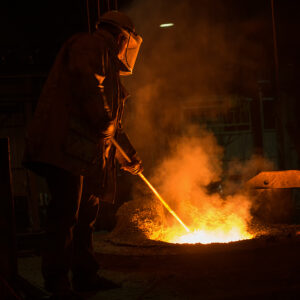Family businesses of all shapes and sizes are struggling to keep their doors open, as many are still recovering from the COVID-19 pandemic. Merger activity shows that family businesses are consolidating and being bought up by multinational corporations. The current fight in Pennsylvania over the future of US Steel presents an interesting case.
Main Street businesses, such as the local mom-and-pop shops, local grocery stores, and small businesses, depend on workers to keep their stores in business. A sale of US Steel to a Cleveland-based company will almost assuredly result in more consolidation and more jobs leaving Pennsylvania.
The proposed sale of US Steel has been an ever-changing picture. Senators John Fetterman of Pennsylvania and Sherrod Brown of Ohio recently wrote competing letters about the potential merger. Meanwhile, President Biden appears inclined to support the workers’ position, which has been to walk the line between opposing the merger and asking for more involvement or possible concessions.
These include prioritizing upgrades to union-run mills and mimicking the strategy employed by union leaders leading up to the U.S. Mexico, Canada Trade Agreement.
Voters understand that consolidation in other industries like airlines, telecom and pharmacies have led to negative results for consumers. The New York Times editorial board opined: “Across the American economy, in industries ranging from air travel to veterinary medicine, big companies keep getting bigger and more powerful. Swallowing smaller rivals has become a widely accepted practice. This concentration of corporate power, however, is neither inevitable nor desirable for the health of the American economy.”
We see in Pennsylvania a microcosm of a more significant phenomenon occurring nationwide.
Some elected officials continue to support the sale, and Cleveland Cliffs, the company reportedly looking to move and consolidate jobs, now realizes it must make concessions. Fetterman has come down on the wrong side of this issue; still, many countrywide are waking up to the reality of consolidation.
Pennsylvania residents have good reason to be wary of more merger activity. According to a report by US Steel on its economic impact: “U.S. Steel’s operations in Pennsylvania supported an estimated 11,417 jobs. Through its operations and capital spending in FY22, U.S. Steel generated $138.2 million in state and local taxes in Pennsylvania.”
This raises the issue of how a merger will affect these Pennsylvania jobs, which keep the economy strong and keep smaller family businesses operating.
According to a press release, US Steel will “retain its iconic name and headquarters in Pittsburgh” if bought by Nippon Steel rather than Cleveland Cliffs. NSC said it would honor agreements with the U.S. Steelworkers Union: “All of U.S. Steel’s commitments with its employees, including all collective bargaining agreements in place with its unions, will be honored, and NSC is committed to maintaining these relationships uninterrupted.”
The jobs picture with Cleveland Cliffs is less clear. An article in Cleveland Magazine last year cited sources that said the Cleveland company was preparing to ship many jobs from Pittsburgh to Cleveland. The article claims, “A major tenant is gobbling up more office space. The tenant, Cleveland-Cliffs Inc., is adding hundreds of office workers to the building, a number that could reach 2,000 employees in the next few years if it can acquire Pittsburgh-based rival U.S. Steel. If that happens, two sources who are close to Cliffs executives say Cliffs will reconsider 200 Public Square as its headquarters of what would become the nation’s largest steelmaker.”
It is easy to see why Cleveland Cliffs has been under scrutiny over the prospect of shipping jobs out of Pennsylvania.
To protect competition in a critical American industry, the workers, consumers and federal regulators must ensure that the steel industry does not consolidate further. The steel industry has already suffered from consolidations over the past 20 years, and the White House has the regulatory authority to protect American consumers and workers from further consolidation.
Local policymakers also have a significant role to play as their decisions will seriously affect job growth in the state. Having one firm dominate so much of an industry that plays a vital role in our domestic supply chains and national defense is bad for the economy and national security.
Pennsylvania’s Main Street businesses will be left holding the bag, as many across the country have already when the customers they depend on day-to-day potentially lose their livelihood and no longer purchase that sandwich at lunch, or shop at the local hardware store. That means fewer jobs for steelworkers and fewer jobs for family businesses in the state. Family-owned and operated businesses, besides providing jobs, support their communities. The support of the local youth soccer team or other philanthropic endeavors will not occur if family businesses cannot survive.
If policymakers hope to keep more jobs from leaving the state, they should consider the big picture, which includes not only large companies but smaller family businesses that work hard every day to serve their customers.
The time is now for a more informed discussion on the future of US Steel and other major industries nationwide.


